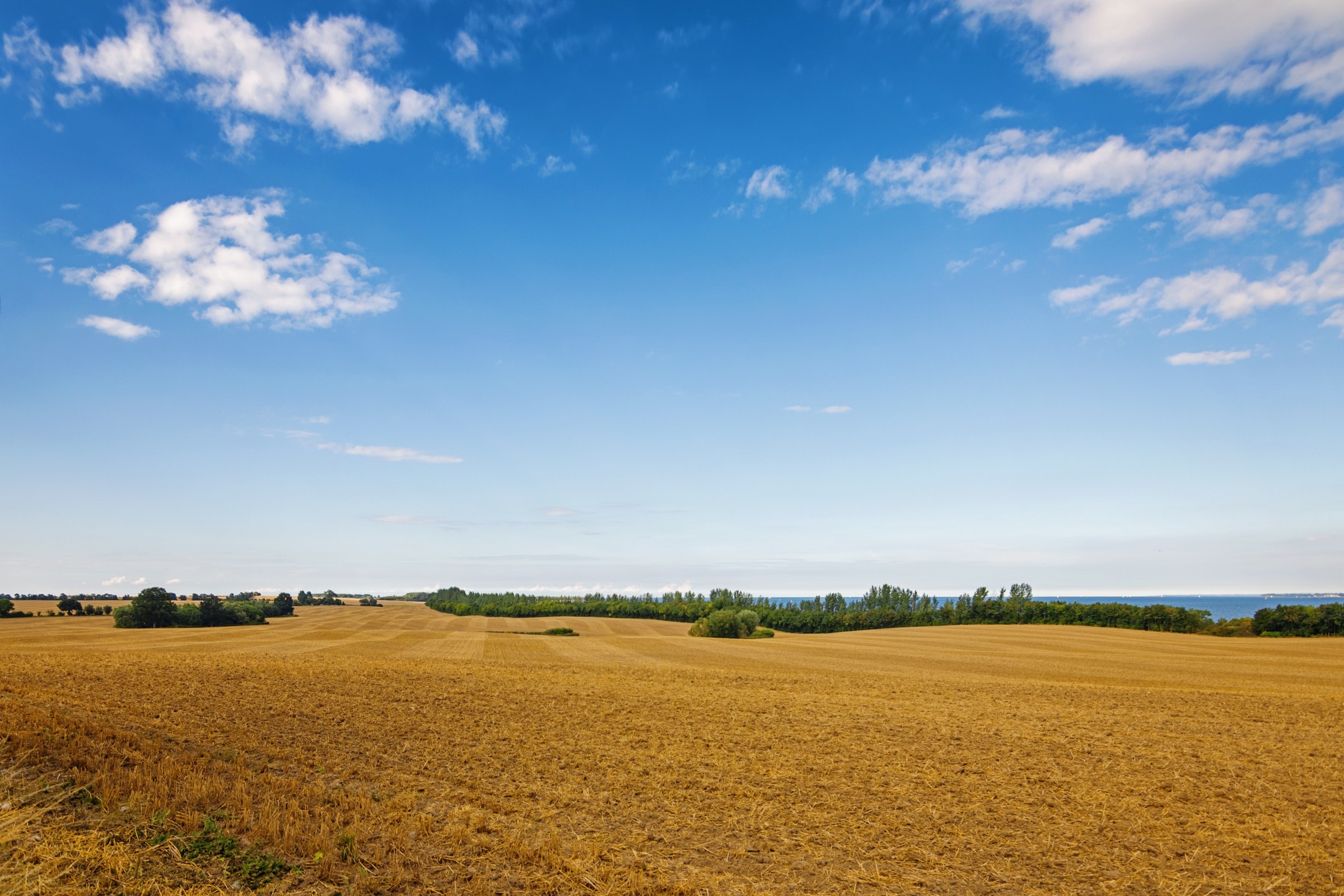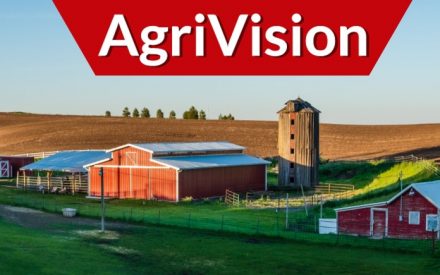Host Katie Wantoch and Ryan Sterry, Professor and Agriculture Agent with Extension in St. Croix County, discuss items to consider when renting additional farmland along with completing an enterprise budget.
View Transcript
This is UW Extension’s Farm Management AgriVision Podcast. I am Katie Wantoch Agriculture agent with the UW-Madison Division of Extension. I’ll be chatting with fellow Extension educators as we answer questions from farmers and share our knowledge and expertise on how you can improve your farm management skills.
Today I am joined by Ryan Sterry, Professor and Agriculture Agent with Extension in St. Croix County. Welcome, Ryan to the podcast.
Ryan Sterry
Thank you Katie.
Katie Wantoch
Ryan, a farmer and his 32-year-old son farm 1500 acres west of Eau Claire, Wisconsin. They own 700 acres and rent the other 800 acres within 10 miles of their farm. Their total debt is $450,000. Half of this debt is on equipment, and the other half is a mortgage on some land they bought two years ago. Last week, the farmer was talking to his 68-year-old brother-in-law, and due to health reasons, he has decided to retire and sell his equipment next spring and rent his 300-acre farm. He asked this farmer if he and his son would be interested in renting it. He said they could rent it for $150 per acre, which is less than he could probably rent from other farmers. But he says he knows they would take care of his land. His farm is 12 miles from their main farm, but it is good land. Ryan, do you think this is a good idea? What should this farmer and his son consider when renting land from family members?
Ryan Sterry
Good question, Katie. I think before we get too far into this one, it’s worth mentioning that this family should consider the time required to pick up additional acres. And if the added acres are compatible with their current line of equipment. Likewise, adding a few more acres can be a positive in some circumstances by helping spread out fixed expenses across the cropping enterprise.
Katie Wantoch
Yeah, definitely pros and cons, certainly in this situation, but labor too, Ryan, they should also consider. I mean, right now with the amount of acres that they’re currently operating, do they need additional labor, if they take on this additional land?
Ryan Sterry
Right? No, it’s really something to think hard about before you do this and we run into both scenarios that in some cases, yes, it’s possible some cases no. But it’s really gonna depend on you know, kind of what that equipment line is, what other you know, those factors, what time do we have committed and there’s gonna be some road time in this scenario, too. So that’s a good starting point, before we get into pushing too many different numbers.
Katie Wantoch
Yeah, and you talked about distance, the road time in there, can you tell me a little bit more about what they should think about?
Ryan Sterry
I think that gets into what you’re saying with the labor. And so it’s not just we got enough corn planter to cover 300 more acres, it’s okay, now we got travel distance, and those little things that add time in there that sometimes we forget about. So I just think that’s a good starting point, start with some of the basics like that. And that also gets you prepped to start working on a crop enterprise budget, which was one of the next steps that we start talking about here. Is okay, then let’s put pencil to paper, figure out what a breakeven price would be at that rental rate. The question said, you know, they thought that they might be able to get more from other farmers, we hear that a lot. But again, you need to think about your specific situation, just because you think you’re getting a few dollars less than what other farmers might have to pay, make sure you can pay for it for yourself. And the way to do that is let’s do an enterprise budget. Let’s put $150 in there as the land rental rate, see how that comes out? Is that really a feasible rental rate or not? Put in your best estimate of what you think crop prices are going to be. We know it’s been quite volatile the last couple years. So put in a few different prices, put in the high price and a low price, just to see how that turns out.
Katie Wantoch
Yeah, definitely. I mean, if the brother-in-law is comfortable with the rate he offered, it’s not saying that in a good year, where the farmer and his son are profitable, that they’re not able to provide a bonus, for example, or a reward to the brother-in-law above the suggested rental rate.
Ryan Sterry
I think that’s a great idea. Keep that in the back of your head. Yeah, it’s one way if you think both parties are happy with what their rental rate is, we think it’s middle of the road not going one extreme or the other. That’s a good thing to do when you have a good year. And then when you have a down year, you’re not under quite as much pressure that we paid a higher rental rate than maybe what we can carry. Likewise, there might be some non-monetary considerations there too. And I know the distance in this case, may not work for that. But there’s other families we worked with where, especially you mentioned, it’s an older relative. Can you help them plow snow in the winter? Is there some brush, fence lines that need to be maintained, cleaned out? Those kinds of things, to make this a beneficial relationship.
Katie Wantoch
Yeah, you talked about relationships, I mean in any landlord/tenant relationship, regardless if it’s family. They really need to have trust within each other. And to do that they talk about how the brother-in-law feels comfortable that they’re going to maintain this land. But putting it in writing, making sure that they have their payments on time also leads to that benefit and stronger relationship too.
Ryan Sterry
Exactly. And you know, I think agreeing and having some of the same thoughts on how to manage waterways and those things is really good but again, having it in writing, they might be thinking conservation means one thing you’re thinking means a different thing. So let’s just make sure we’re on the same page. Before we start this agreement. I think that’s a really good discussion point and place for you to start once you start getting to the point of, okay, yes, we think we’re going to do this. Let’s make sure we’re on the same page with those things.
Katie Wantoch
Right, and you talk about conservation, those are certain things that can certainly be included in the lease that the brother-in-law might be concerned about till or no till, maybe use of cover crops, if that’s something that they’re looking at. Maintaining soil fertility, and some other practices that might benefit him as the landlord, as well as the farmer and son as the tenant.
Ryan Sterry
Correct. So yeah, and it cuts both ways. And so whoever’s operating needs the freedom to do a crop rotation, manage the crop as they see fit, where it’s not too restrictive. But I think the things you mentioned, Katie, are perfectly acceptable to make this a win/win situation. So the challenge here is we can’t put X dollars is the value of doing that. But we know it’s important. And we know there’s a value on that. And we also know that these types of things can lead to disputes just as much, if not more than having a dispute over what the X dollar amount rent should be. I think that’s what catches the headline is we’re paying so many dollars per acre. But these other factors can lead to as much good and bad as having a disagreement over what the rental rate should be as well.
Katie Wantoch
Well, Ryan, thank you so much for joining us on the podcast today.
Ryan Sterry
Appreciate it, Katie.
Katie Wantoch
Join Ryan and I on the next podcast episode as we finish our discussion on what this farmer and his son should consider about lease agreements when renting land from family members. Just a reminder, Ryan and I are educators, not attorneys. The information in this podcast was intended to provide general information about legal issues in agricultural leasing, and should not be construed as providing legal advice. It should not be cited or relied upon as legal authority. For advice about how the issues discussed here might apply to your individual situation, you should consult an attorney.
For more Extension Agrivision podcasts or resources to improve your farm management skills check out farms.extension.wisc.edu. Thanks for listening.
Related Resources
Information in this article was originally published as part of the Agrivision column in Wisconsin Agriculturist.
Extension resources


 AgriVision Episode 23 - At a Crossroads
AgriVision Episode 23 - At a Crossroads


